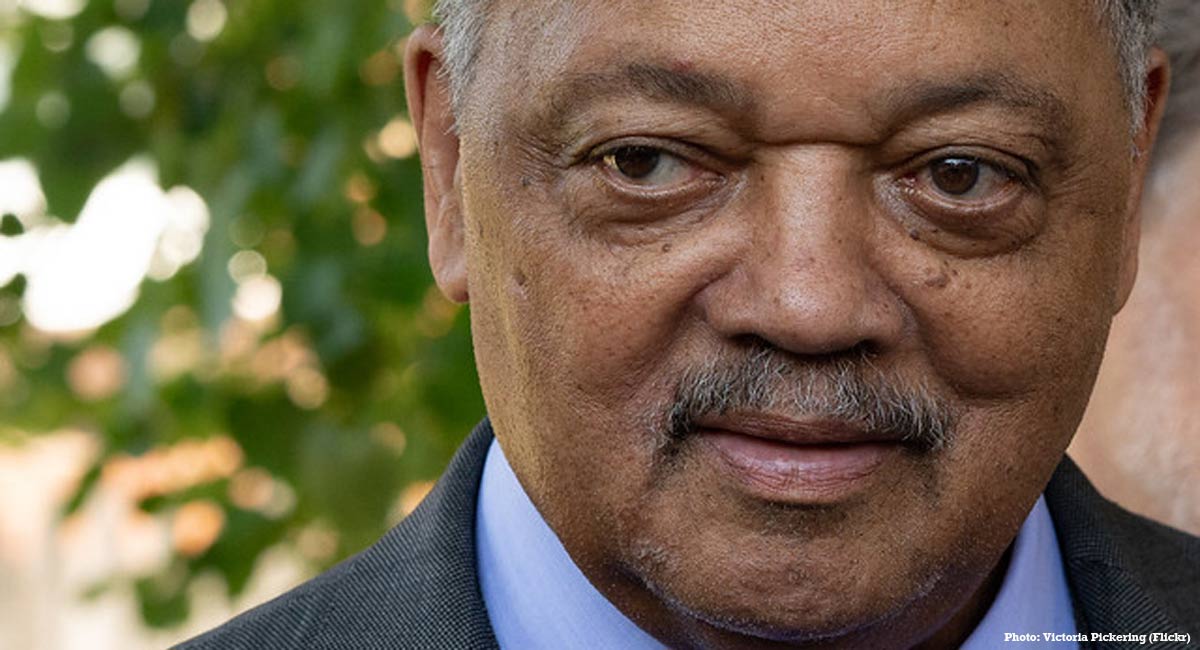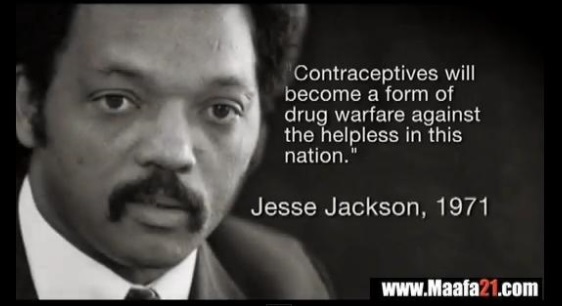Jesse Jackson has written a blistering op-ed, slamming pro-life legislation in Alabama, Georgia, and Missouri. These pro-life bills have abortion activists in near hysterics, spreading fear-mongering rhetoric about how these laws are dangerous for women — and Jackson is no different.
Writing for the Trice Edney Wire, Jackson criticized the “extremist laws,” lamenting that it will be difficult for poor women to undergo abortions. And he also carelessly repeats falsehoods, writing, “Some of the laws would imprison doctors; others lock up mothers. This is what the anti-abortion movement has demanded.” This is untrue; even the Washington Post has debunked this oft-repeated myth about mothers supposedly being jailed. Yes, abortionists could face prosecution for committing abortions, but under these laws, women absolutely will not.
Jackson also framed the issue as one of injustice and classism. “Lost in this posturing — mostly by male politicians — is the basic reality. Passing laws that outlaw abortions won’t end abortions,” he charged. “They will simply make them less safe, putting more lives at risk. And the posturing totally ignores the deep injustices surrounding reproductive rights, as whatever the law is, rich women will retain the right of choice — even if it requires going to a hospital in another country — while the lives of poor women, already locked out of any federal support for the counseling and choices they need, will be at ever greater risk.”
READ: These Black leaders in history viewed abortion as Black genocide
“The posturing will lead to the punishment of poor women for childbearing, putting more women and more fetuses at risk, and leave more infants born into a life without the basic support — health care, food, shelter — needed to have a chance for a healthy life,” he continued. “I share the concern for life that animates the most sincere opponents of abortion. I also agree that reproductive justice is essential to women.”
It is both interesting and sad that Jackson takes this view; he was formerly pro-life, as many Black leaders have been, even notably calling abortion a “genocide.” He also previously supported both a constitutional amendment banning abortion, and laws prohibiting the taxpayer funding of abortion. In an interview with the New York Daily News, he said, “I think that whenever Human Life ceases to represent the highest value in the human sphere, the society is in trouble… at this point what the court have ruled in abortion, the legal, it almost takes away from the young man the responsibility, and from the young woman the responsibility, of the act they have engaged in. And when people begin to use the excuses like ‘this girl is not ready yet’ it means that the law of convenience becomes the highest law, and that is a very dangerous precedent morally, even before it becomes political!”
He also criticized the idea of abortion being an issue of privacy, even comparing it to slavery in 1980, saying, “You could not protest the existence or treatment of slaves on the plantation because that was private and therefore outside your right to be concerned.” But it was later in the 1980s that his tune inexplicably began to change, and he began to advocate for abortion instead. And that has continued to this day, with Jackson continuing to advocate for abortion while remaining silent when black women are killed at the hands of abortionists.
But it’s Jackson’s own conception and childhood that make his agitation for abortion so strange. In his pro-abortion op-ed, Jackson complains that poor women will be disproportionately affected — yet he, himself, was born to less-than-ideal circumstances.
Jackson’s mother, Helen Burns, was a victim of what we would certainly consider today to be statutory rape. At the age of 16, she became pregnant by her neighbor, Noah Robinson, who was 33 years old and married. At her young age, this represented a seriously problematic sexual encounter; a 16-year-old girl’s brain is still developing and maturing, and she is not capable of consenting to sex with a man more than twice her age. An adult of Robinson’s age would be seen as someone in a position of authority over her, and a sexual relationship like that between Burns and Robinson is exploitative, predatory, and coercive. Burns became an unwed teenage mother, herself the daughter of an unwed teenage mother, and as the African American Registry points out, Burns, her son Jesse, and her mother — who helped raise Jackson — were left to struggle in poverty while Robinson enjoyed relative prosperity and respect. Robinson refused to acknowledge Jackson as his son for years, and Jackson took his stepfather’s name when Burns married. But for much of Jackson’s childhood, he was ridiculed and mocked for being “a nobody with no daddy.”
Despite this difficult childhood, or perhaps because of it, Jackson had a strong desire to succeed, receiving a football scholarship to the University of Illinois before he transferred to North Carolina Agricultural and Technical State College, a Historically Black College. He became involved in the civil rights movement, and graduated from the Chicago Theological Seminary, serving as a minister. The rest is history — and none of it would have been possible had Burns been pressured to have an abortion, as many women are today — Black women in particular.
Today, Jackson could be continuing to fight for the things he once fought for; in 1979, he said, “Politicians argue for abortion largely because they do not want to spend the necessary money to feed, clothe and educate more people. Here arguments for convenience and economic savings take precedence over arguments for human value and human life…. In my mind serious moral questions between $300.00 and $1000.00 to have abortion, but will not pay $30.00 for a hot school lunch for the already born children of these same mothers.”
There are, indeed, social injustices facing families living in poverty. Likewise, women who survive rape have experienced not only the trauma of their attack, but the social stigma surrounding being an unwed mother. Yet according to some studies, most of these women choose life. Rape survivor Deana Schroeder was pressured into having an abortion after her assault, but she said “[i]t just added more layers of trauma, self-doubt, grief and guilt.” Rape survivor Jennifer Christie, however, has argued that giving birth to her son (and choosing to parent him) helped her heal. “Our children are what bring us hope and joy,” she said. “We come to life again in their laughter.”
Jackson has the ability to advocate for the vulnerable, and instead, he is using his position to attack the most vulnerable among us — preborn children — while helping perpetuate the institutional misogyny that forces women to feel they have no choice but abortion. It’s truly a tragedy that a man who was able to overcome so much is not doing more to give that same opportunity to families like his.
“Like” Live Action News on Facebook for more pro-life news and commentary!








